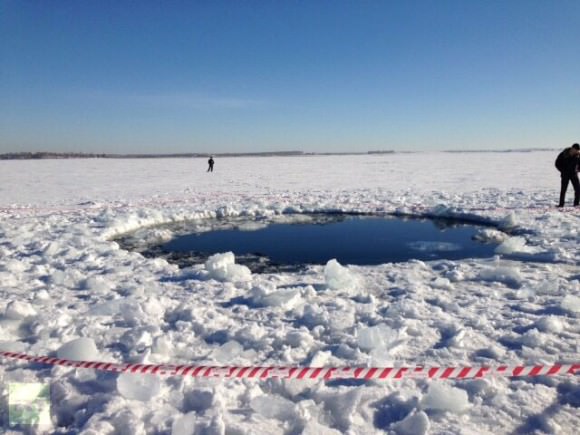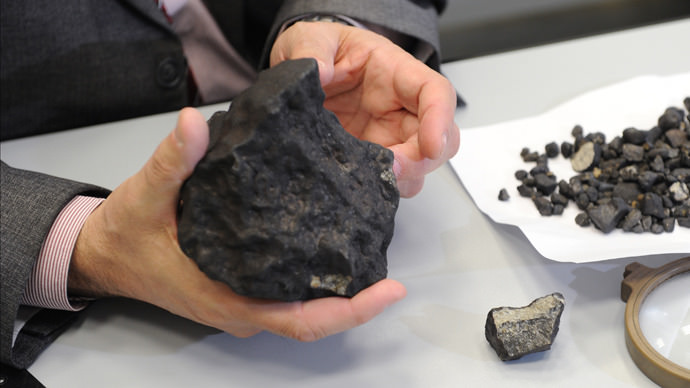Scientists and meteorites hunters have been on a quest to find bits of rock from the asteroid which exploded over the city of Chelyabinsk in Russia on February 15. More than 100 fragments have been found so far that appear to be from the space rock, and now scientists from Russia’s Urals Federal University have discovered the biggest chunk so far, a meteorite fragment weighing more than one kilogram (2.2 lbs).
The asteroid has been estimated to be about 15 meters (50 feet) in diameter when it struck Earth’s atmosphere, traveling several times the speed of sound, and exploded into a fireball, sending a shockwave to the city below, which broke windows and caused other damage to buildings, injuring about 1,500 people.

Fragments of the meteorite have been found along a 50 kilometer (30 mile) trail under the meteorite’s flight path. Small meteorites have also been found in an eight-meter (25 feet) wide crater in the region’s Lake Chebarkul, scientists said earlier this week. Viktor Grokhovsky from the Urals University believes there are more to be found, including a possible biggest chunk that he says may lie at the bottom of Lake Chebarkul. It could be up to 60cm in diameter, he estimated.
This video from NASA explains more:
Please note that while many pieces have been found, and if you are looking to buy a chunk of this famous meteorite, you need to approach this with a lot of skepticism. There have been some reports of people trying to sell pieces that they claim to be from the Ural/Russian meteorite, but they likely are not. Be careful and do your research on the seller before you buy.
Source: RT.com


Note that the lecturer is contaminating the sample with his bare hands. Put on gloves!
It has already been contaminated by the atmospheric particulates and the ground it hit.
ET virus gets on hand
Man picks his nose and virus gets inside body
Virus likes it and multiplies
ET epidemic starts
ET epidemic ends with no one left
What did you learn….
Don’t pick your nose!
Viruses work purely on DNA and RNA, genetic code that is only known to exist on Earth at this time (granted we don’t have a huge sample to draw from). Why would you assume an extraterrestrial organism would be anything close to similar to Earth life?
“Several times” the speed of sound is an understatement worthy of the Brits
I want a piece of it for my Collection…